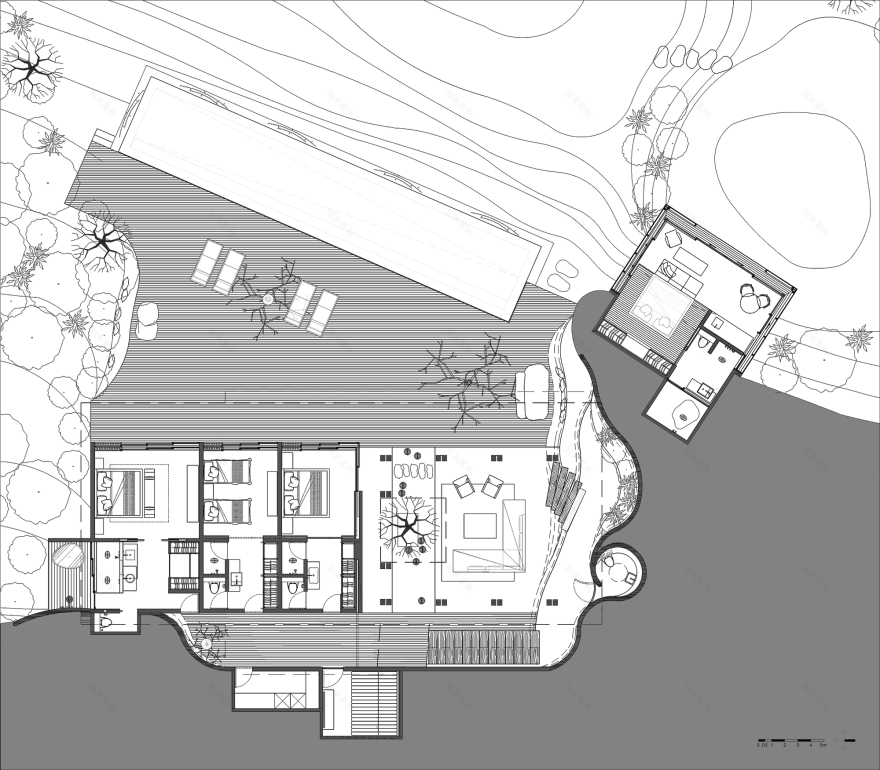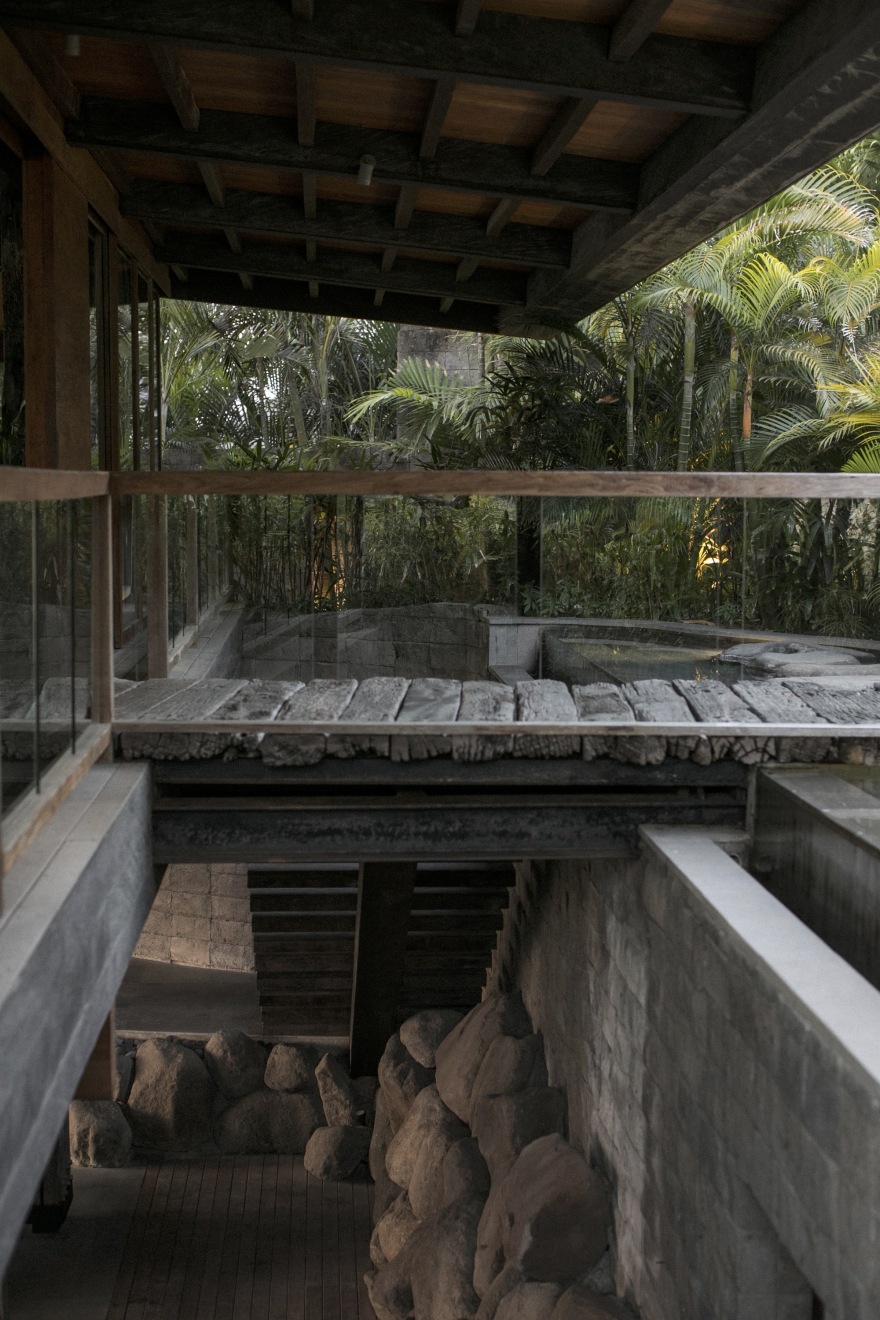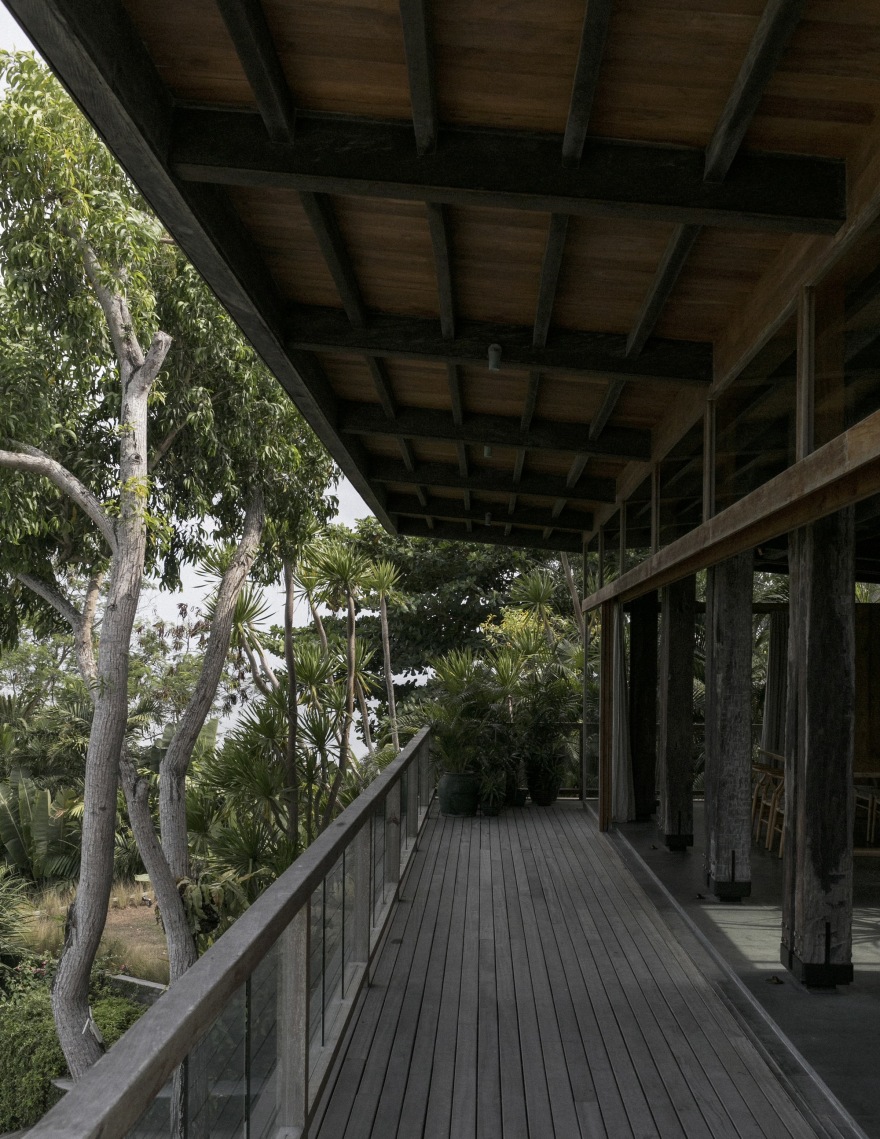查看完整案例

收藏

下载

翻译
Architects:Earth Lines Architects
Area:470m²
Year:2019
Photographs:Tommaso Riva
Manufacturers:Dekkson Lock,Modena,PC Henderson,Toto
Contractors:Bali Construction
Project Managers:Bali Construction
Landscape Contractors:Uluwatu Building Co
Interior Architect And Principle Designer:Abbie Labrum
Lead Design Drafter And 2 D Drawings:Firman Azi
Senior Architect; 3 D Modeling And Visualisation:Hari Saweka
Structure Engineer:Yogi Artawan
Author:Julianne Greco
City:Kecamatan Kuta Selatan
Country:Indonesia
Text description provided by the architects. In the awe-inspiring landscape of Bali’s Uluwatu Surf Villas complex, Iron Wood House is a private residence and holiday rental nestled above a majestic cliff top – overlooking the boundless Indian Ocean. Balancing nature with modern luxuries, the residence celebrates a spectacular sunset horizon, lush garden sanctuaries, and water elements to generate a sense of calm expansiveness amid seclusion.
The owners requested a spacious tropical villa incorporating reclaimed Indonesian wood structures with a modern treatment manifested in a minimal and linear form. In line with their ethos, Earth Lines Architects' approach was to create a contextually inspired tropical villa with hints of vernacular architecture that responds to its topography and environment. Perched on a 2300m² cliff-front plot in Uluwatu, with an unobstructed view of one of the most famous surf breaks in the world, the spiritually significant environment surrounding Iron Wood House exudes effortless beauty.
The architectural vision evolved from a light, floating, two-story structure anchored into the natural land gradient. When guests first glimpse the facade, Iron Wood House almost disappears into the greenery, giving off the impression of a subtle and understated single-story residence. By contrast, as you make your way through the graceful, low east-ward facing entrance, the gentle-pitched roof expands towards a westward-facing sunset view for a dramatic reveal of a limitless ocean, evoking a profound sense of arrival.
At the heart of the project are 52 remarkable reclaimed iron wood columns, which comprise the core structure and, therefore, became one of the residence’s principal materials. Imagined as a journey while considerate to the user experience, Earth Lines Architects designed a layout rooted in function yet sympathetic to the column grid. Contributing to the illusion that the house is anchored, the columns anchor a secondary structure of steel beams and ulin wood joists to support the ulin-shingle roof with large cantilevered overhangs. A concealed water catchment gutter runs along the lowest eave as a sustainable contribution. Rainwater is collected, stored, treated, and then used throughout the house – addressing the Bukit Peninsula’s escalating water shortage challenges.
The memorable columns not only bind the house together but whisper heritage into the residence. They are marked by scars and imperfections of a past life underwater – likely as pieces of a bridge – prevailing against creatures attempting to consume them. To source and implement these ulin columns, the contractors harnessed the expertise of talented local wood specialists who deeply understand the exceptional durability and character of Kalimantan’s iron wood. Known locally as kayu ulin, iron wood is native to Borneo. Reclaimed teak, a warm and compliant wood originating from Java, naturally became another principal material to both complement and contrast with the dark tones of the primary structure. These wood artisans are a living legacy unique for their knowledge and history of a craft that is becoming exceedingly rare in other indigenous parts of the world. It continues to be a very special opportunity for Earth Lines Architects to collaborate with them and explore their skills.
The residence’s location along the Ring of Fire also informed the architects’ structural choices. Sitting in a seismically active area north of the Java Trench, Iron Wood House’s design is inspired by traditional Indonesian architecture built in wood to sustain earthquakes. To accommodate these seismic concerns, Earth Lines Architects constructed a flexible structure with twin column sets tied together with steel plate connections and beams. Erosion considerations dictated a large setback from the limestone cliff edge.
To invite moments of discovery, design concepts playfully integrate nature and can be found throughout the house. Notably, a pandanus tree in the courtyard draws natural light into the GF pool lounge and contributes to good natural cross ventilation. As guests enter, they are greeted by a seemingly levitating roof and reflection pond with river stone steps, meeting a reclaimed railway sleeper footbridge. The entrance’s low roofline requires guests to step down — an echo of a common feature among entrances in Indonesian vernacular architecture. In this traditional style, a step at the doorway prompts individuals entering a building or sacred space to bow, creating a special cultural initiation for those who pass through; the water flowing into the house is also a request from the owner to attract prosperity.
As part of a larger collection of artistic homes, challenges arose in protecting views for neighboring properties. Iron Wood House is one of three villas designed simultaneously to form a unified and adaptable residence. The other two villas, Jungle Villa and Teak House are smaller one-bed studios thoughtfully located and blended into the plot alongside the main house. Green roof gardens were introduced to ensure the ocean views for adjacent villas. Sharing an open cliff-front lawn with an iconic neighboring villa exposes the pool deck level. Consequently, louver screens were introduced to offer privacy and protection for the bedrooms overlooking a 25m saltwater, infinity-edge lap pool.
Engaging the senses, the property fosters a feeling of stillness and solace. As a collective effort to enrich our environment, the outcome is a raw yet soulful and inviting family home, organically embedded into its surroundings at the tip of ‘lands end’ – Uluwatu.
Project gallery
客服
消息
收藏
下载
最近
















































